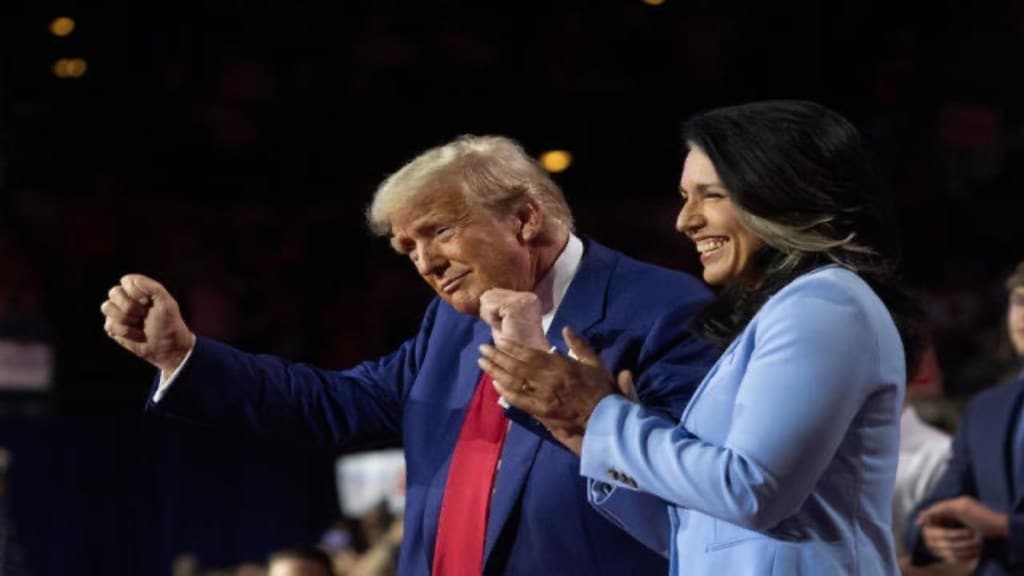President-elect Donald Trump once again made headlines with his announcement that former Democratic congresswoman Tulsi Gabbard will be his pick for the role of Director of National Intelligence (DNI). Gabbard, who shifted political allegiances after her 2020 presidential bid within the Democratic Party, has garnered bipartisan support over her career, positioning her as a unique figure in Trump’s administration. In her new role, Gabbard will oversee the 18 agencies that constitute the US Intelligence Community.
A Bold Choice: Trump Praises Gabbard’s Bipartisan Appeal and Strong Record
Trump praised Gabbard’s background, describing her as a leader with “broad support” from both sides of the aisle. “I know Tulsi will bring the fearless spirit that has defined her illustrious career to our Intelligence Community, championing our Constitutional Rights, and securing Peace through Strength,” Trump stated. “Tulsi will make us all proud!” Known for choosing loyalists for key government roles, Trump has looked to Gabbard’s unique blend of experience and strong-willed approach, although some other recent picks, such as Pete Hegseth for Secretary of Defense, have faced criticism for lacking traditional national security credentials.
A Combat Veteran and First Hindu in Congress
Gabbard made history in 2012 as the first Hindu elected to the U.S. House of Representatives, representing Hawaii. With experience as a combat veteran and former Lieutenant Colonel in the Army Reserve, her military service adds depth to her role as Director of National Intelligence. Observers note that Gabbard’s appointment might signal a shift in Trump’s approach to foreign policy and intelligence.
Shaping Trump’s International Strategy
Gabbard has been an outspoken critic of the Biden administration’s handling of global conflicts, which may now influence Trump’s international policies. She cited her concerns over Biden’s “multiple wars on multiple fronts” and described the world as “closer to the brink of nuclear war than we ever have been before.” Speaking at a campaign rally, Gabbard emphasized that her support for Trump centres on his aim to de-escalate global tensions, stating, “I am confident that his first task will be to do the work to walk us back from the brink of war.”
Criticism of US Foreign Interventions: Gabbard’s Track Record
Gabbard’s critical stance on US foreign interventions sets her apart from mainstream voices. She has condemned Biden’s support of Ukraine in its conflict with Russia and was notably vocal against the Obama administration’s involvement in Syria. In 2017, she sparked controversy by visiting Syria to meet President Bashar al-Assad, who has been accused of serious human rights abuses. Her willingness to question U.S. foreign policy, even at the risk of public backlash, reflects her unorthodox approach and foreshadows potential shifts in the Trump administration’s diplomatic strategies.
Looking Ahead: Gabbard’s Role in Trump’s Cabinet
With Gabbard in a central intelligence position, Trump’s cabinet may lean toward a strategy that prioritises de-escalation of current conflicts and a reassessment of long-standing US alliances and engagements. Her previous critiques of US interventionist policies suggest she may steer Trump’s team towards a less conventional approach, potentially reshaping America’s posture on the global stage.


